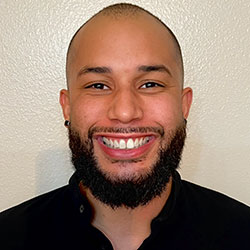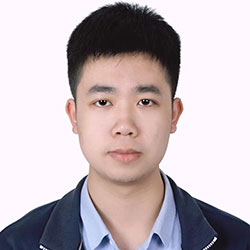Taylor Olson and Lixu Wang Awarded IBM PhD Fellowships
Northwestern Engineering computer science PhD students Taylor Olson and Lixu Wang have been awarded IBM PhD Fellowships in recognition of their demonstrated academic excellence and innovative research.
Founded in 1951, the highly competitive, global IBM PhD Fellowship Award program is intended to support exceptional PhD students whose research is aligned with IBM focus areas, including artificial intelligence, hybrid cloud technology, quantum computing, responsible and inclusive technology, and security. Award recipients are nominated by faculty members and selected based on their potential for academic and research excellence.
Taylor Olson
Olson is a PhD candidate in computer science advised by Ken Forbus, Walter P. Murphy Professor of Computer Science at the McCormick School of Engineering and director of the Qualitative Reasoning Group.
Olson’s research lies at the intersection of human-centered artificial intelligence, epistemology, and philosophy. He investigates normative theories, logical reasoning, and machine learning, and aims to create responsible and inclusive artificial intelligence systems with social and moral competence.

Olson is currently working on a project to develop safer and more interpretable AI systems with moral guard rails.
“With all the hype around deep learning, some are attempting to create ethical AI systems by simply training on tons of ‘ethical’ data, but these models can be unreliable,” Olson said. “My project combines learning models with explicit moral rules and reasoning capabilities so the system aims to learn social norms from training data, but it can also reject those that are immoral. Philosophically analyzing this distinction between morality and convention is thus one of the most interesting and key aspects of this project.”
Olson acknowledged Forbus and his lab colleagues as well as Kyla Ebels-Duggan, professor of philosophy at Northwestern’s Weinberg College of Arts and Sciences, for their guidance and the many brainstorming sessions that helped shape his work.
“My research has allowed — really forced — me to explore and communicate things deep inside of myself,” Olson said. “To see that these have resonated with others makes this process feel communal and that means a great deal to me.”
Olson earned bachelor’s degrees in computer science and mathematics and a minor in philosophy from the University of Northern Iowa. While pursuing the mechanical engineering program at Kirkwood Community College, Olson was a starting all-region point guard with Kirkwood’s basketball team.
Lixu Wang
Wang is a PhD candidate in computer science and a visiting research scientist at General Motors in Detroit.

Drawing from techniques in federated learning, out-of-distribution generalization, continual learning, and secure multi-party computation, Wang is developing socially responsible large language and vision-language models.
He aims to develop secure and robust AI model training processes that both protect data privacy and defend against active attacks. He is also focused on ensuring that trained AI models are more responsible through approaches including strict access control of data or task distribution and intellectual property protection.
Wang is co-advised by assistant professor of computer science Xiao Wang and Qi Zhu, associate professor of electrical and computer engineering and (by courtesy) computer science at Northwestern Engineering. Wang earned a bachelor of engineering degree from Zhejiang University, advised by Wenyuan Xu.
“I really appreciate the professional and meticulous instruction from my advisors, Professor Qi Zhu and Professor Xiao Wang and I also want to thank my previous collaborators for their help and contributions,” Wang said.
